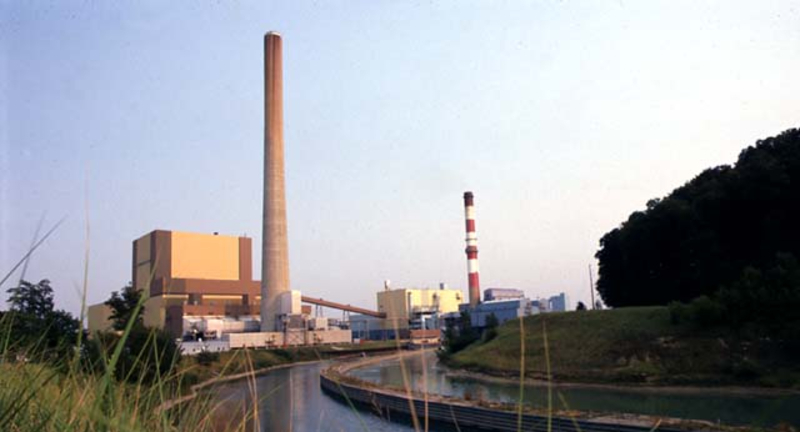Government is a process; at least in normal times it is. But these are not normal times in the US, where the enfant terrible in the White House loathes process and prefers to rule through fear and intimidation. His idea of governing is to get people to “kiss my ass” — his words, not ours. The latest outrage is an emergency order from Chris Wright, the billionaire head of the US Energy Department who made his money pumping millions of gallons of toxic pollutants underground to unlock pockets of methane. That order prohibits the closure or a coal-fired generating station in Michigan.
Under normal circumstances, a government agency suggests policies which are then published in the Federal Register. That begins a public comment period in which all interested parties get to submit their opinions, which the administrative agency proposing a policy reviews before making a final policy. Believe it or not, there are people who make their living posting policy initiatives on the Federal Register, reading the Federal Register, writing comments, and digesting all the comments, which can run to 1000 or more if the policy proposed is controversial. This is how the administrative state, so loathed by those on the right, operates.
But Wright, true to his MAGAlomaniac roots, has no interest in following such procedures. He prefers to rule by decree. On his own initiative, with no input from anyone but his fossil fuel buddies, he ordered the 63-year-old J.H. Campbell coal-fired generating station to stay in operation for at least the next 90 days. That facility was scheduled to close last week, the end of a decommissioning plan that was approved by the state’s Public Service Commission in 2022.
Wright apparently knows better than the PSC what is good for Michigan. He claims the Midwest will be hot this summer and so there could be a shortage of electricity due to a lack of available coal, gas, and nuclear plants that can provide stable baseload power.
After the order was announced, Dan Scripps, the chair of the Michigan PSC, who presumably knows a thing or two about that utility industry in his home state, told CNN, “The grid operator hadn’t asked for this; the utility hadn’t asked for this; we as the state hadn’t asked for this. We certainly didn’t have any conversations with the (Energy Department) in advance of the order, or since.”
Consumers Energy, the utility that owns the coal plant, told CNN in an email it has already purchased another methane-fired power plant to carry the load when the coal plant went offline. It was part of the decommissioning plan everybody agreed to three years ago, not that Chris Wright would care about anything related to the woke mind virus that infected the entire federal government before the current crop of bozos came to town.
Scripps said the cost to keep the old plant operating, even for 90 days, will cost ratepayers in 15 states a lot of money in the form of higher utility bills. “I can say with a pretty high degree of confidence that we’re looking at multiple tens of millions of dollars at the low end,” he said. “I think there’s a range between there and the high end of getting close to $100 million.” Nothing says making America great again like adding financial burdens to people’s household budgets.
The Energy Department Responds
Ben Dietderich, a spokesperson for the Energy Department, defended the order to keep the plant open. In a statement, he said, “For years, American grid operators have warned decommissioning baseload power sources such as coal plants would jeopardize the reliability of our grid systems, which has raised alarm bells.” CNN noted that he did not indicate whether the Energy Department conducted any type of cost analysis. Nor did he indicate the agency actually knew there was a plan in place to replace the electricity from the plant with electricity from another source following its closure.
According to the New York Times, emergency orders such as this are “a highly unusual use of the Energy Department’s emergency powers under the Federal Power Act. In the past, the department has typically issued emergency orders at the request of regional grid operators to stabilize the power supply during extreme weather events and blackouts.”
Dana Nessel, Michigan’s attorney general, told the New York Times she was “considering” challenging the order. “We think this is par for the course with the Trump administration. They’re abusing emergency authorities and really manufacturing an emergency that doesn’t exist, in a way that’s really unprecedented.” 15 states have challenged the executive order signed on the first day the current administration took office declaring the US was facing an “energy emergency.”
The Cost Of Coal Keeps Rising
A new report by Energy Innovation says the cost of electricity from coal-fired generating stations has grown faster than inflation in the last few years. That increase cost utility customers $6.2 billion more in 2024 than it would have cost in 2021. “Even existing coal where it has fully depreciated and been paid off, the cost of coal is more than solar and storage at this point,” said Doug Lewin, a Texas-based energy expert who publishes the Texas Energy and Power Newsletter.
92 percent of new electricity capacity added in Texas over the past four years has come from wind, solar, and battery storage, Lewin said. That has kept energy prices relatively low even as demand in the Lone Star State has risen sharply. “All throughout the summer months, you’re getting maximum solar output. It’s very well correlated to peak demand. For a place with massive AC load like Texas, it’s fantastic,” he told CNN.
The Baseload Myth
All this blather about baseload power is a bunch of hooey. Fortunately, CleanTechnica readers have the benefit of Michael Barnard’s insights on that subject. He writes:
“The electricity industry is undergoing a fundamental shift, and the term baseload is being dragged, kicking and screaming, into obsolescence. For decades, the grid was built around the idea that massive coal and nuclear plants would run 24/7, providing a constant, inflexible supply of electricity. That paradigm worked in a world where electricity demand was predictable and fossil fuels were the unquestioned backbone of energy systems.
“But today’s grid isn’t that grid. Wind and solar now dominate new generation capacity, and modern electricity markets prioritize firmed and flexible power — resources that can ramp up and down as needed rather than sitting there stubbornly running at full tilt. In a system where supply varies with weather and demand surges unpredictably, baseload isn’t just irrelevant, it’s a liability [emphasis added]
“The problem is that regulatory frameworks are often stuck in the past, still treating baseload as a sacred cow because it was baked into the assumptions of legacy generation. Electricity rules written in the era of centralized thermal plants enshrined baseload as a necessity, not because it was inherently better, but because that’s all the industry had. Now, as grids integrate massive amounts of wind, solar, and storage, what actually matters is capacity that can be dispatched when needed — not whether a plant hums along at a constant rate regardless of demand.
“The future isn’t about keeping outdated baseload plants online; it’s about matching supply to demand dynamically with a mix of renewables, storage, responsive loads, and fast-ramping generation. Clinging to baseload as a defining characteristic of reliability is like demanding that Netflix schedule its content releases around broadcast TV slots. It’s an outdated framework that no longer makes sense in the world we live in.”
Sounds like Michael Barnard would be a far better choice to run the Energy Department than Chris Wright, who is unable to understand the reason summer in Michigan will be hot is partly due to the emissions from this coal-fired plant over the past 63 years. When you put ideology over intelligence, this is the result you get.

Sign up for CleanTechnica’s Weekly Substack for Zach and Scott’s in-depth analyses and high level summaries, sign up for our daily newsletter, and follow us on Google News!


Whether you have solar power or not, please complete our latest solar power survey.
Have a tip for CleanTechnica? Want to advertise? Want to suggest a guest for our CleanTech Talk podcast? Contact us here.
Sign up for our daily newsletter for 15 new cleantech stories a day. Or sign up for our weekly one on top stories of the week if daily is too frequent.
CleanTechnica uses affiliate links. See our policy here.
CleanTechnica’s Comment Policy

